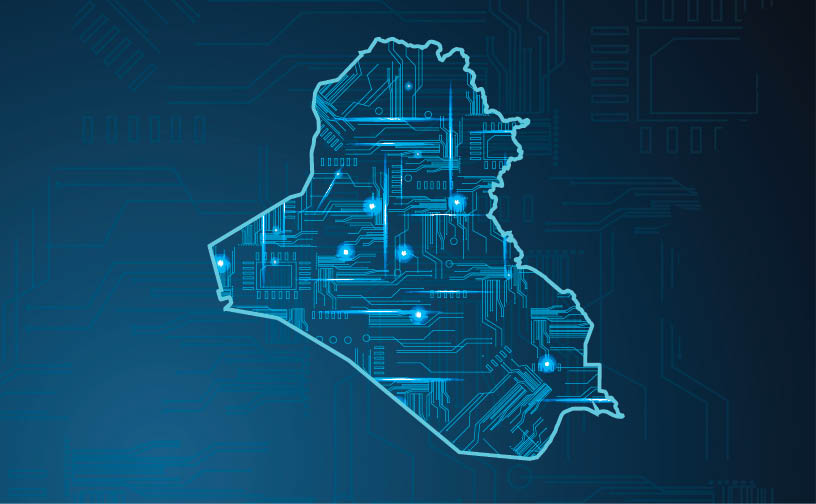DR. HUSSEIN Allawi, ADVISOR TO THE IRAQI PRIME MINISTER ON SECURITY SECTOR REFORM
Cybersecurity is a strategic priority for the government of Iraq. Iraq has established a cyber incident response team (CERT), activated a cybersecurity policy and crafted an electronics crime law extensively debated in the Iraqi parliament.
The main task of the CERT is to combat cyber-attacks in all ministries, work with security and intelligence agencies to monitor hackers and terrorist groups, and pursue organized cybercrime gangs. These precautions are necessary in contemporary societies such as Iraq’s that rely increasingly on the internet to transfer money and conduct the business of government.
Cyberattacks are a growing threat in the world, leading to international concern that terrorist groups are appropriating advanced technologies to carry out cyberattacks on vital installations. With that in mind, Iraq launched the Second National Conference on the Development and Building of Security Capacities in Cyberspace in Baghdad in September 2021.
The conference constituted a major shift in the work of the Iraqi CERT. The conference covered issues of concern such as electronic crime, cyber capacities to counter 5G wars, the impact of cybersecurity and modern technologies on national security, and protection of children on the internet. Further topics included the impact of cybersecurity on people in a world besieged by disinformation, digital security for students, and online money laundering and financial transactions.
The conference also included a technical demonstration by the Iraqi CERT, crowned by a security exercise in which the team rapidly intervened to repel a cyber threat.
Atheer Al-Jabber, head of the Iraqi CERT, highlighted the importance of the conference in light of business and government adopting electronic automation because of the COVID-19 pandemic.
“On the occasion of the sessions of this conference, we achieve another step toward the success of providing services in cyberspace,” Al-Jabber said.
Exchanging technical expertise acquired by friendly countries when repelling a cyberattack or rehabilitating networks after a breach of the security system is considered the backbone of cybersecurity. Iraq is benefiting from the experiences of friendly countries in the technological field and is working to develop and build security capabilities in cyberspace.
On the other hand, Iraq is keen to share information it has learned regarding how terrorists abuse cyber technology to communicate, encrypt and plan attacks. Because terrorist groups and organized crime gangs share ideas and technologies, the international community must work together to thwart attackers’ malicious plans.
The foundation of cybersecurity is the creation of an advanced technology sector with the resourcefulness to repel sophisticated cyberattacks. Iraq must continuously review national policies on cybersecurity and strengthen its capabilities. The Iraqi government is working to attract dynamic individuals in the security and civil services to develop Iraq’s potential in cybersecurity and cooperation involving the government sector, the private sector and international companies.
Iraq would like to nurture a unified culture to confront cyber threats, reduce incidents of information hacking and dumping, stop the spread of disinformation that threatens civil peace, and reduce cybercrime employed by the unscrupulous against internet users.
The public-private partnership involving cyber-security is a strategic necessity. Sectors such as health, education and energy increasingly rely on cyber connectivity to conduct their business. For this reason, the Iraqi government and the CERT team are keen to create new information technology solutions.
Iraq would like to nurture a unified culture to confront cyber threats, reduce incidents of information hacking and dumping, stop the spread of disinformation that threatens civil peace, and reduce cybercrime employed by the unscrupulous against internet users.
Government ministries use financial incentives to encourage entrepreneurs in information technology and cybersecurity. Iraq must also focus on preparing women to make greater contributions to this important field. They are the future force of our prosperous society, which is facing many challenges. Empowering women is an essential part of the Iraqi government’s program and philosophy of work. The role of women in developed countries is prominent in the technical field, and technological progress has come about at the hands of women working at sensitive sites in social media, the software industry and e-marketing.
Today we must support significant growth in business, e-commerce, and information technology investment in every part of Iraq by developing legislation, public policies and the capability to accommodate cybersecurity requirements. We must support the Iraqi government’s plans to build partnerships between Iraq and the international business community by providing a suitable environment for the growth of information technology companies with the aim of serving society and modernizing its capabilities.
Fortunately, the Iraqi government’s success in supporting the Independent High Electoral Commission for free and fair elections and the commission’s ability to counter cyberattacks during parliamentary elections on October 10, 2021, sent a major message about Iraq’s improved capabilities in countering cyberattacks and reinforcing cybersecurity.

